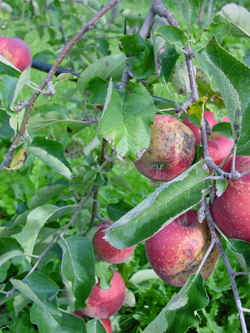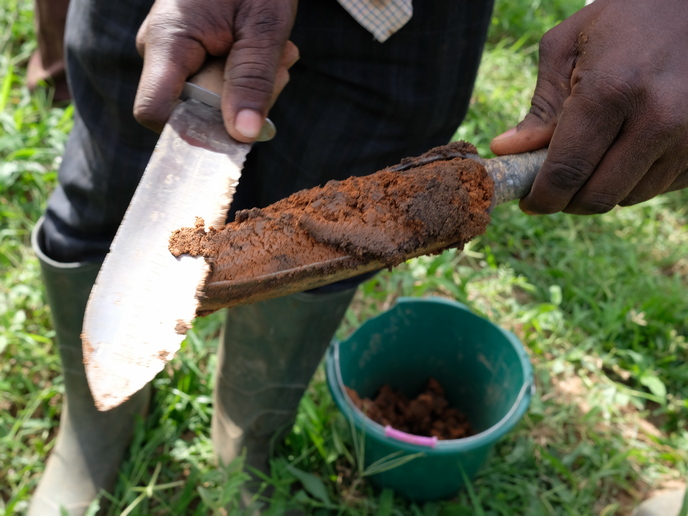Novel measures for organic crop production
Copper-based fungicides act by releasing copper ions leading to the disruption of protein functions in targeted plant pathogenic fungi or bacteria. Copper is an essential plant nutrient and its adsorption depends on the soil pH. However, large concentrations of copper ions can be toxic to plants and soil organisms. A recent European Council regulation has directed the stepwise reduction of permitted copper amounts in the soil in the following years, necessitating the development of novel pest control measures. seeking to replace copper fungicides, the EU-funded ‘Replacement of copper fungicides in organic production of grapevine and apple in Europe’ (REPCO) project developed new measures of downy mildew and scab control in grapevine and apple, respectively. the consortium teams screened numerous potentiators of resistance and fungicides to control downy mildew in grapevine and scab in apple. The potential of some of these compounds was assessed in field experiments of apple and grapevine cultures. Antagonists were also tested for their ability to control apple scab alongside plant extracts against Plasmopara viticola infection. One novel compound exhibited high efficiency against apple scab and was promoted for commercial development. additionally, project members evaluated the risk of pathogen evolution during use of these novel control measures. The knowledge acquired was integrated into organic crop management systems through the collaboration of small and medium-sized enterprises (SMEs) and research partners. overall, the REPCO project demonstrated the feasibility of replacing copper fungicides with novel compounds and bio-control agents for organic crop production. The commercial exploitation of these novel control measures is expected to improve the safety and quality of organic apple and grapevine agricultures and support integrated EU policies for the replacement of copper fungicides.







